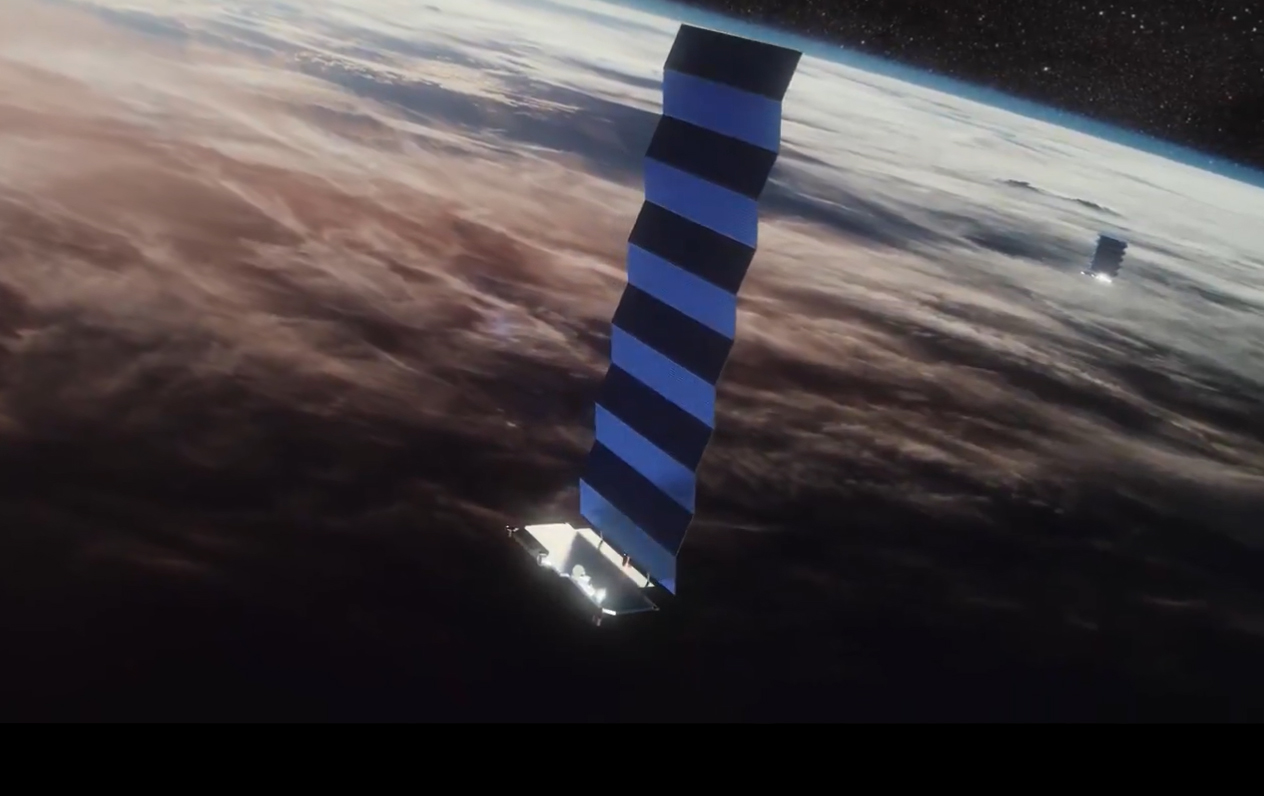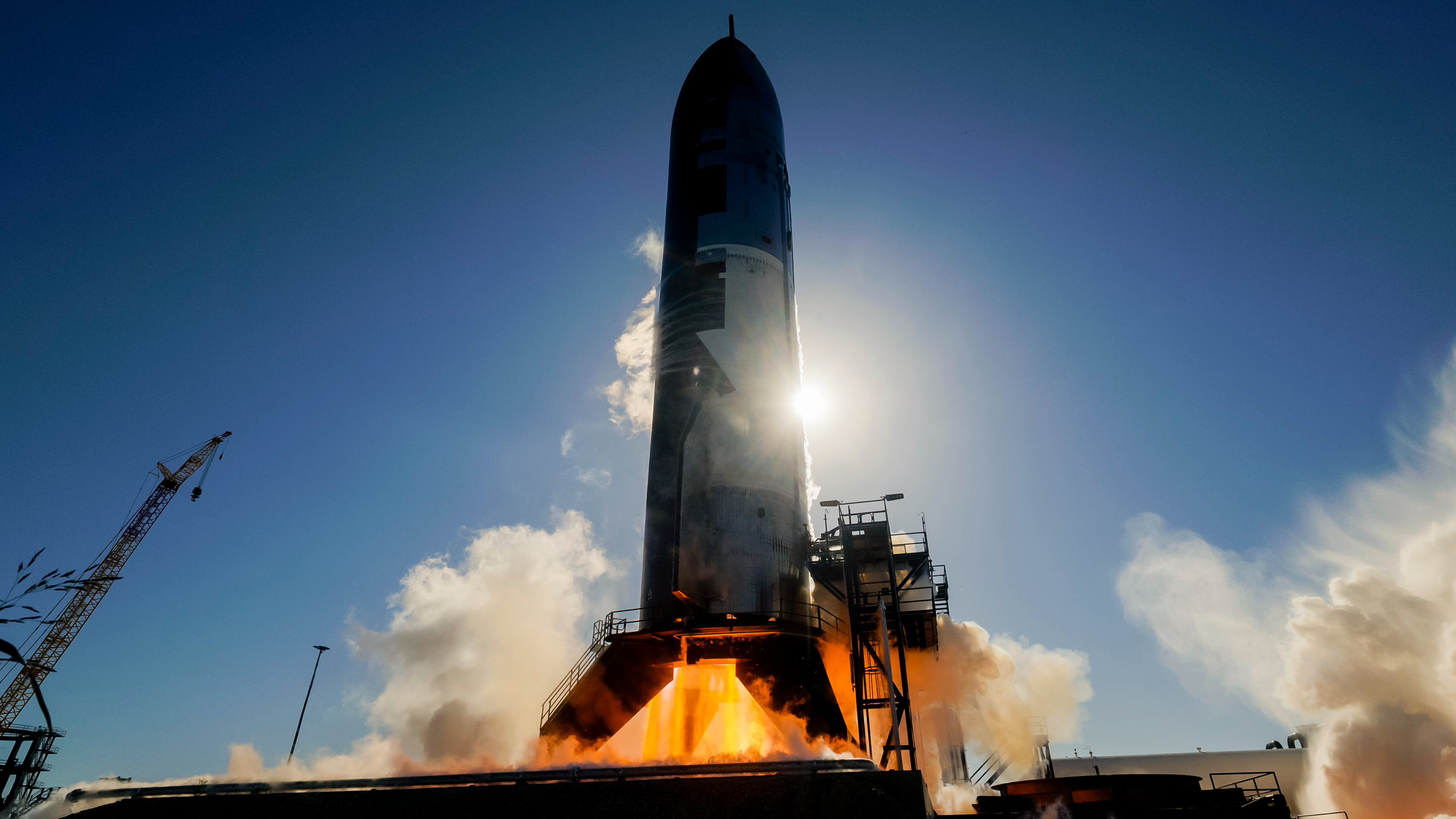How SpaceX got Starlink up and running in Ukraine: report
The company was working for six weeks before a Ukrainian government official made a request on Twitter Feb. 26.

SpaceX worked for six weeks to bring Starlink satellite internet service to Ukraine ahead of a formal request from government officials of the besieged country.
SpaceX president Gwynne Shotwell shared the news Monday (March 7) during an online presentation, which was first reported by SpaceNews.
"We had been working on trying to get permission — landing rights — to lay down capacity in Ukraine,” Shotwell said according to SpaceNews, saying the company was working on this due to planned expansion of Starlink services in Europe and other locations. "We had been working with the Ukrainians for a month and a half or so."
SpaceX CEO Elon Musk came through on a pledge to deliver Starlink in late February, after Ukraine's lack of connectivity had an official ask Musk personally for assistance on Twitter.
That official was Mykhailo Fedorov, Ukraine's vice prime minister and the country's minister of digital transformation. Two days after his tweet, on Feb. 28, he shared a photo on Twitter of a batch of new Starlink terminals.
Related: Russia's Ukraine invasion and space impacts: Live updates
Starlink — here. Thanks, @elonmusk pic.twitter.com/dZbaYqWYCfFebruary 28, 2022
Shotwell said the tweet allowed SpaceX to proceed with the "landing rights", as they were lacking a formal letter from Ukraine before Russia invaded the country Feb. 24 to international condemnation.
Get the Space.com Newsletter
Breaking space news, the latest updates on rocket launches, skywatching events and more!
"But then they tweeted," SpaceNews quoted Shotwell as saying of Fedorov's request, on behalf of the Ukrainian government. "There's our permission."
She noted that providing Starlink was, in the company's estimation, "the right thing to do" because "the best way to uphold democracies is to make sure we all understand what the truth is."
Russia has been suspending services to its own citizens on Twitter and other social networks (unless such people use a virtual private network to access the information.) The country also recently introduced wide-ranging sanctions against independent journalists reporting on the war, forcing many international bureaus to leave Russia or modify reporting practices to protect journalist safety.
SpaceX joins an ever-growing list of companies and countries taking action to support Ukraine in the effort to fight back against the Russian invasion. Russia is under numerous economic sanctions affecting the space industry, among other things.
At the moment, the International Space Station remains operational as usual, according to NASA; Russia and the United States are the chief partners on the multinational coalition. ISS operations are approved through 2024, although a hoped-for extension to 2030 appears tricky under the circumstances.
Numerous international space partnerships with Russia have frayed or disintegrated in the largest such change in the space industry since the breakup of the Soviet Union in the early 1990s.
Follow Elizabeth Howell on Twitter @howellspace. Follow us on Twitter @Spacedotcom or on Facebook.
Join our Space Forums to keep talking space on the latest missions, night sky and more! And if you have a news tip, correction or comment, let us know at: community@space.com.

Elizabeth Howell (she/her), Ph.D., was a staff writer in the spaceflight channel between 2022 and 2024 specializing in Canadian space news. She was contributing writer for Space.com for 10 years from 2012 to 2024. Elizabeth's reporting includes multiple exclusives with the White House, leading world coverage about a lost-and-found space tomato on the International Space Station, witnessing five human spaceflight launches on two continents, flying parabolic, working inside a spacesuit, and participating in a simulated Mars mission. Her latest book, "Why Am I Taller?" (ECW Press, 2022) is co-written with astronaut Dave Williams.
